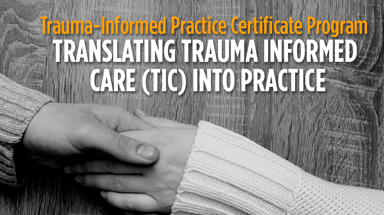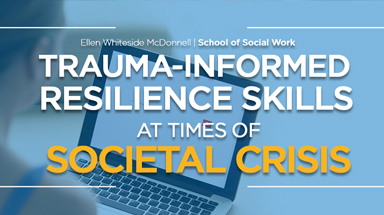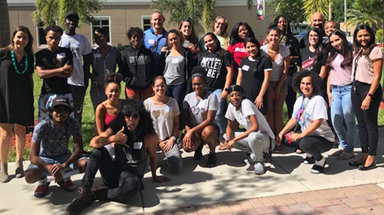About the CenterCenter for Human Rights and Social Justice
Welcome to the Center for Human Rights and Social Justice! The CHRSJ has a primary mission of advancing crucial human rights and social justice initiatives in our local and global communities through targeted education, research, service, and leadership. The CHRSJ values collaboration and partnerships with community members, organizations, and university faculty, staff and students. We approach our human rights and social justice work through an anti-oppressive lens which acknowledges the influence of privilege and oppression on the existence and maintenance of human rights violations. The CHRSJ values equally the voices of all community members and commits to work in authentic partnership with the communities being served.
Our Initiatives born out of the School of Social Work’s strong collaborations represent some of the most pressing needs of our community, and are inclusive of some of the most underserved and marginalized populations locally and globally. Specifically, our Center is committed to the following five initiatives (1) Combating Human Trafficking (2) Preventing Sexual Victimization (3) Creating Inclusive Communities sexual and gender diverse Individuals (4) Advancing Trauma Informed Research, Education and Practice, and (5) Promoting Wellness in Marginalized Communities.
The Center is proud to host affiliated faculty and community partners with decades of experience who are fiercely committed to advancing human rights and social justice across countless critical issues impacting our communities. The Center’s affiliates possess unparalleled practice and advocacy skills necessary to mobilize positive change. Moreover, our faculty are engaged in research and scholarship which impact practice and policy across multiple pressing human rights issues in contemporary society.
Through the power of collective action and collaborative social justice work, the Center for Human Rights and Social Justice in the Barry University School of Social Work aims to a create safe, stable, and inclusive society for all individuals. Welcome to our Center and please spend time exploring our website further to learn more about our faculty, community partners, resources, upcoming events, and the ways to get involved in our work. We hope you will contact us with ideas for collaboration that can advance the human rights and social justice initiatives of the Center.
Funded by the Ware Foundation


























